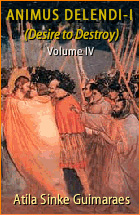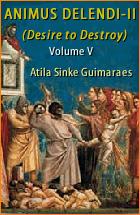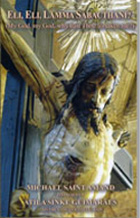Objections
Refutation of the Affirmation by Vinícius C. Mérida:
‘Dr. Plinio Changed His Position
on the New Mass’
 Volume I |
 Volume II |
 Volume III |
 Volume IV |
 Volume V |
 Volume VI |
 Volume VII |
 Volume VIII |
 Volume IX |
 Volume X |
 Volume XI |
 Special Edition |







Several days ago, a friend from Brazil sent me a video – “Miracle or Skillfulness of João Clá” – in which Mr. Vinicius Mérida (V.M.) attributes to Prof. Plinio Corrêa de Oliveira a change in position on the New Mass. He affirmed that Prof. Plinio had become “more tolerant of the Mass of Paul VI.” As “proof” of such a change, V.M. claims that he heard this “from the priests of Campos.” So, he feels free to spread this accusation.
I am writing this refutation to demonstrate that this assertion is not true. Everyone knows that “I heard about it from...” is often not reliable evidence before God, public opinion or the law. Those who use this resource must be cautious in order to avoid the reputation of lack of seriousness or other legal damages that may arise.
In the case of “the priests of Campos,” I believe that I am in a position to prove conclusively that this affirmation – Prof. Plinio changed his position regarding the Mass of Paul VI – is false. Let me enter the matter.
I - What authorizes me to speak
1. Under the guidance of Dr. Plinio, I wrote an 11-volume Collection analyzing the Second Vatican Council. In 1995, the year in which Prof. Plinio died, this Collection had not been published. Today all 11 volumes are available to the public in English, as can be seen here.
Vinicius Mérida: ‘I heard it from the priests of Campos’
A falsehood: ‘At the end of his life, Dr. Plinio changed his position on the New Mass’
2. As a result of this Symposium and at the request of the aforementioned priests, Prof. Plinio asked me to advise them in the discussion they were having with the Bishop of Campos, Msgr. João Corso, who had sent violent letters to three of the mentioned priests accusing them of schism and threatening to go public with this accusation.
3. This accusation of schism by Bishop Corso was based on three points:
a. The TFP, to which the priests gave spiritual assistance, would be schismatic;
b. The priests did not accept the New Mass;
c. They did not accept the Second Vatican Council.
4. This accusation was based on a correspondence the priests had been having for some years, at times with the Diocese of Campos, at other times with the Ecclesia Dei Commission in the Vatican.
5. In view of the violence of the Prelate's accusation and his threat to go public, the mentioned priests, under the guidance of Dr. Plinio, decided to write a letter to Card. Antonio Innocenti, then President of the Ecclesia Dei Commission.
6. It was to this letter that, at the request of Dr. Plinio and the priests, I gave my collaboration. Today it opportunely demonstrates that V.M.’s statement about Dr. Plinio Corrêa de Oliveira is false.
II - Analysis of the Letter to Card. Innocenti
1. The original letter:
I have the final draft of this letter that I sent at that time to Fr. Olavo Trindade and that the four mentioned priests signed without any modifications; it was sent to Card. Innocenti a few days later. I am posting the letter in its entirety in an attached file that can be accessed here. I will refer to it during this refutation.
2. Regarding the writing of the letter:
This document was the result of consultations of the four priests with Dr. Plinio, who used to receive them in private meetings and guided them during most of the phase in which they took a position of resistance to the New Mass and Vatican II. In view of the latest attacks by Bishop Corso, the four priests, at the suggestion of Dr. Plinio, made a first draft of a response that was sent to me, together with Bishop Corso's letters and their previous correspondence with the Ecclesia Dei Commission.
I made good use of the first draft, placing Bishop Corso's arguments in order and refuting them using the priests' material in the order in which they appear in the final version. The draft was carefully reviewed by Dr. Plinio, who approved it after making a few modifications and introducing the text relating to my work on the Council. After that, I sent two or three drafts to Fr. Olavo, who discussed them with the other priests, made adjustments and small changes in non-essential points, and returned them to me. The final draft, which I publish in the Appendix, is verbatim the content of the letter signed by the four priests.
3. Regarding the date of the letter and its numbering:
As can be verified, the date in the final draft is open: August 1995, no day. The draft does not contain the four signatures. I learned from Fr. Olavo Trindade that the letter was sent a few days after they received the final draft. I do not remember if the letter was sent in August or early September. It never occurred to me to ask for a copy of the document as sent, since I already had its contents.
In any case, what matters is that this was one of the last documents carefully reviewed and approved by Dr. Plinio. Shortly after in September he would spend a long time in the hospital and would die on October 3, 1995. The position he took in that letter reflects his final thoughts on both the 1969 Mass and the Council.
The numbering of the letter begins on page 2 because page 1 contained a message from me to Fr. Olavo Trindade that is not relevant to reproduce.
4. Position regarding the Mass of Paul VI:
I reproduce here the 1995 text in which the priests ratified their previous position on this matter:
The priests of Campos: left to right: Frs. Antonio de Paula, Olavo Trindade, Canon José Luiz Villac, Antonio SIlveira, Gervásio Gobato, David Francisquini; in the center, Dr. Plinio; in the background, : the Princes Dom Luiz de Orleans e Bragança & Dom Bertrand de Orleans e Bragança
“However, this major premise has important conditioning factors. In fact, when we accepted the requirements demanded by the aforementioned Commission on November 22, 1989, in granting the celebret, we made our problems of conscience very clear regarding the so-called New Mass and some unspecified points of Vatican II.
"We justified our attitude toward the Novus Ordo by sending it the book upon which we based our decision [Arnaldo Xavier da Silveira, La Nouvelle Messe de Paul VI: Qu’en Penser] and requesting clarifications that would show us, in the doctrinal sphere, the solution to the problem raised there: That is, that the New Mass did not seem to us to be reconcilable with the previous Catholic Doctrine.” (p. 6)
Relating these facts that took place in 1989 and 1991 to Cardinal Innocenti in 1995, the priests thus ratified them.
Further, they also mention a later letter:
“On November 22, 1993, we sent Bishop Corso an extensive and detailed letter that sought to make it perfectly clear that the interruption of the dialogue could not be attributed to our prolonged silence. In the letter, we presented strong arguments in favor of our position regarding the Novus Ordo. Among others, the statements of Cardinal Silvio Oddi …
“We also reproduce an excerpt from a letter from Jacques Maritain to Paul VI made public in May 1992, in which the French philosopher stated about the Novus Ordo that …” (pp. 7, 8)
The Campos priests continue:
“The same magazine [30 Dias] in a later issue (July 1992) presented the opinions … of various personalities regarding that French translation … [Cardinals Jacques Martin, Silvio Oddi, Alfons Stickler, Decoutray]
“Such statements by eminent ecclesiastical personages were undoubtedly such as to justify the conclusions of Xavier da Silveira’s study upon which we based our perplexities.” (p.8)
The four signers of the Letter to Card. Innocenti could not be clearer in their rejection of Paul VI’s Novus Ordo Missae. They rejected it in 1989, 1991, 1993 and confirmed this constant rejection in 1995.
It so happens that, as I said, this letter was carefully revised and approved by Dr. Plinio less than two months before he died. Therefore, Dr. Plinio not only shared the same rejection of the Novus Ordo Missae, but he inspired it in the priests from the beginning of their resistance until the end of his life.
5. Position regarding the Council:
The priests in the Letter to Card. Innocenti stated the following:
Tradition, Family, Property was a beacon of orthodoxy until 1995; then, agents infiltrated, broke it & brought a major part of it to Progressivism
"It was at this point that we became aware of the work of a Brazilian writer, a Catholic layman and member of the TFP who, since mid-1982, has been preparing a detailed analysis of Vatican II. We contacted him and were shown a multi-volume work that is already in the process of being published. … We found it to be a truly serious study that meets our needs. …
“The author expressed himself to be very honored at the prospect, suggested by us, of entering into dialogue with the Ecclesia Dei Commission, any other Roman Dicastery, or even with His Excellency D. Corso in order to document some points of the Council and post-Council which, in our view, are difficult to harmonize with the previous Magisterium.” (p. 9)
It is not difficult to see from the text transcribed above that the signatory priests assumed a position of resistance toward the Council analogous to that which they had toward the New Mass. The same can be affirmed without the slightest doubt about Dr. Plinio, who inspired the letter under analysis and inspired my work on the Council.
III - Conclusions
1. The texts transcribed here with the explanations of how the Letter to Card. Innocenti was inspired and written show that Dr. Plinio Corrêa de Oliveira maintained until the end of his life the same position regarding the Mass of Paul VI that is set out in the book by Dr. Arnaldo Xavier da Silveira. Therefore, Mr. Vinícius Mérida's statement that Dr. Plinio changed his position regarding the New Mass at the end of his life is false.
2. The four priests who signed the letter also maintained until 1995 the same position of resistance to the New Mass and the Council that they had held until then.
3. The four priests knew perfectly that Dr. Plinio had not changed his position until his death. If, sometime after this, three of them said that “Dr. Plinio at the end of his life became more tolerant towards the New Mass,” they were lying.
Furthermore, the consistent and meritorious position of resistance of Rev. Fr. David Francisquini to this day, who remains faithful to what the four signed in 1995, demonstrates the position the other three should have taken.
4. V.M. states that he “heard from the priests of Campos” the accusation that I now refute. In his presentation – “Miracle or Skillfulness of João Clá”– he superficially mentions the Letter to Card. Innocenti of 1995. If V.M. had read it, even without knowing what had taken place behind the scenes, he could have reached a conclusion similar to what I reached (III. 3): that is, that the three priests were lying. But even without having read it and based on mere rumor, he did not retreat from attacking the good name of Prof. Plinio Corrêa de Oliveira.
5. For these reasons, his accusation has no value whatsoever; it is mere intellectual mischief.
6. Morally, however, his action is more serious: He defames an illustrious personage and tries to flatter those who have sold themselves to Progressivism, with the apparent aim of benefiting from the crumbs that fall from their banquet table.
This is what I have to say for the sake of truth and out of consideration for my esteemed Mentor, His Excellency Professor Dr. Plinio Corrêa de Oliveira.
Related Topics of Interest
Related Works of Interest